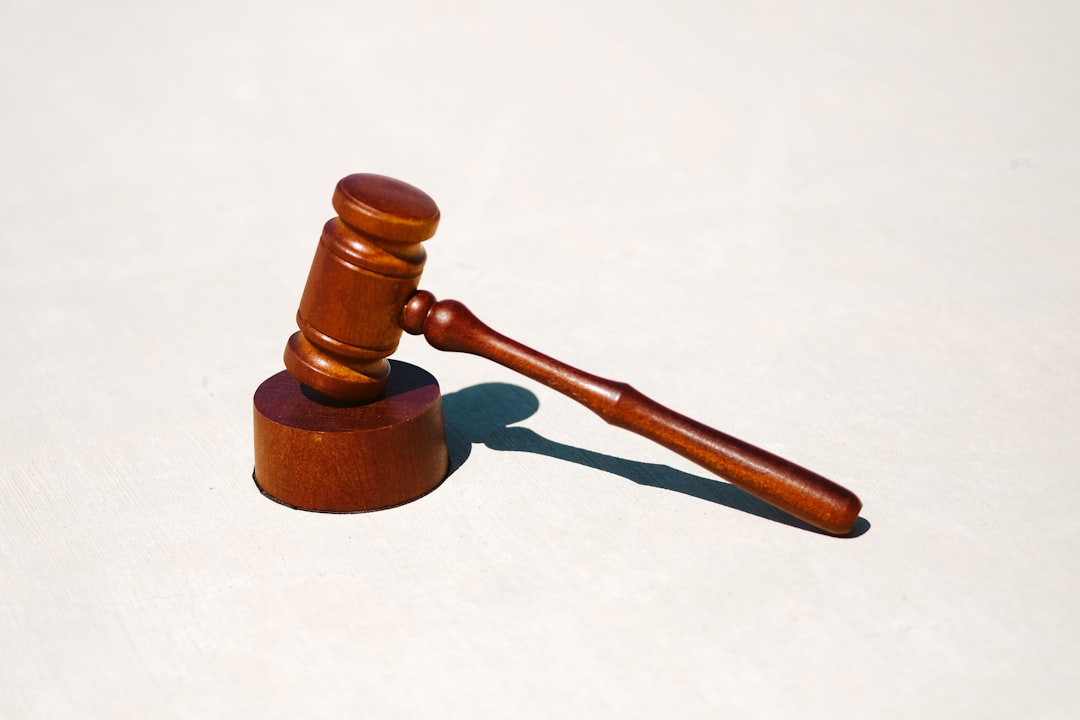Georgia's stringent legal framework against sexual assault in nursing homes requires facilities to have robust policies, training, and immediate reporting protocols. Sexual assault lawyers Georgia are vital for navigating these regulations, ensuring fair treatment, and maintaining high care standards. The process involves resident complaints, investigations, evidence collection, and confidential handling. Nursing homes must prioritize resident safety, offer support services, and keep guardians informed. Legal experts advocate for residents' rights, address power imbalances, and ensure compliance with state laws governing long-term care facilities. Key strategies include staff training, open communication, victim support, and policy adoption to foster a safer environment.
The handling of sexual assault allegations within nursing homes is a critical issue, particularly in Georgia, where an aging population relies on these facilities for care. Unfortunately, instances of abuse and misbehavior have led to concerns about the adequacy of responses from both institutions and legal systems. Given the sensitivity and complexity of such cases, having knowledgeable sexual assault lawyers Georgia can play a pivotal role in ensuring justice and accountability. This article delves into the current practices and challenges faced by nursing homes in Georgia when addressing sexual assault claims, offering insights into potential improvements and the crucial support provided by legal experts specializing in this domain.
Understanding Georgia's Legal Framework on Sexual Assault

Georgia’s legal framework regarding sexual assault within nursing homes is a critical aspect of ensuring resident safety and accountability for care facilities. The state has implemented stringent laws to protect individuals residing in these institutions from any form of sexual abuse or exploitation. Sexual assault, as defined by Georgia law, includes a broad range of offenses, from unwanted touching to non-consensual sexual acts. Key legislation, such as the Georgia Sexual Offenses Act, outlines the legal standards and penalties associated with sexual misconduct, emphasizing the state’s commitment to holding perpetrators accountable.
One notable aspect is the requirement for nursing homes to have comprehensive policies and training programs in place to prevent and address sexual assault. These policies must be readily available to residents, their families, and staff members, fostering transparency and accountability. Additionally, Georgia mandates that care facilities report all suspected or actual instances of sexual abuse to local law enforcement agencies without delay. This proactive approach ensures a swift response and encourages victims to come forward, knowing their allegations will be taken seriously.
When facing sexual assault allegations, nursing homes in Georgia should consult with experienced legal professionals, particularly sexual assault lawyers Georgia, who can guide them through the complex regulatory environment. These attorneys can assist in developing robust defense strategies while adhering to legal obligations, ensuring fair treatment for all parties involved. By understanding and navigating Georgia’s legal framework effectively, care facilities can maintain high standards of care and protect the rights and dignity of their residents.
Reporting Procedures in Nursing Homes: A Step-by-Step Guide

Nursing homes in Georgia are required to have robust reporting procedures in place for sexual assault allegations, ensuring a prompt and thorough response. The process typically begins when a resident or their representative suspects an incident has occurred. They should immediately report it to the nursing home’s administration, which is responsible for documenting the complaint and initiating an investigation. This initial step is crucial as it triggers the necessary actions to protect the resident and potentially hold perpetrators accountable.
The administration must appoint a designated staff member to handle the matter confidentially. This individual should be well-trained in sexual assault dynamics and aware of local resources, including contact details of sexual assault lawyers Georgia residents can consult for legal guidance. The next phase involves gathering evidence, conducting interviews with involved parties, and reviewing relevant medical records. It is essential to document every step to create a comprehensive report that can be used as evidence if the case proceeds to legal action.
During this process, the nursing home should ensure the resident’s safety and provide support services, such as counseling or medical attention, if needed. They must also inform the resident’s family or designated guardians about the allegations and the steps taken, maintaining transparency throughout. The final report should be submitted to both internal authorities within the facility and external entities, including law enforcement and relevant regulatory bodies, as required by Georgia laws governing nursing homes. This comprehensive approach ensures accountability and contributes to creating a safer environment for all residents.
The Role of Sexual Assault Lawyers Georgia in These Cases

In Georgia, sexual assault allegations within nursing homes require a meticulous handling process, with significant legal implications. When such incidents occur, the involvement of sexual assault lawyers Georgia becomes pivotal in ensuring justice and protecting the rights of all parties involved. These attorneys play a crucial role in guiding both residents and facilities through complex legal frameworks, offering expertise tailored to these sensitive cases. Their primary objective is to navigate the often-delicate balance between upholding resident dignity and privacy while adhering to stringent legal requirements for investigation and prosecution.
Sexual assault lawyers Georgia are well-versed in Georgia’s specific laws and regulations pertaining to long-term care facilities. They understand that nursing homes are subject to various compliance standards, including those related to patient safety, consent forms, and reporting procedures. When an allegation surfaces, these legal professionals initiate a thorough investigation, scrutinizing evidence, medical records, and witness statements. This process is essential in building a solid case while also identifying potential breaches of protocol by the facility or its staff. For instance, they may examine whether informed consent was obtained for certain medical procedures, which could be relevant in cases where residents allege non-consensual touch or exploitation.
Moreover, sexual assault lawyers Georgia provide critical support during legal proceedings. They represent clients in court, advocate for their rights, and challenge any unfair practices. In nursing home settings, these attorneys must consider the unique dynamics at play, including the potential power imbalance between staff and residents. Their expertise helps to ensure that investigations are conducted impartially and that any legal actions taken are proportionate to the alleged offense. By engaging the services of sexual assault lawyers Georgia, nursing homes can benefit from professional guidance, resulting in improved protocols and a safer environment for all residents.
Prevention Strategies and Support for Victims in Nursing Homes

Nursing homes in Georgia face unique challenges when addressing sexual assault allegations, requiring comprehensive prevention strategies and robust support systems for victims. Given the vulnerable nature of residents, these facilities must prioritize safety measures to create an environment that discourages inappropriate behavior and ensures prompt reporting. One effective approach is implementing extensive training programs for staff members, focusing on recognizing signs of potential abuse and promoting a culture of consent and respect. Regular workshops and seminars can educate caregivers on the importance of privacy, personal boundaries, and appropriate interactions with residents.
Additionally, many experts emphasize the significance of open communication channels. Encouraging residents and their families to voice concerns or experiences is crucial. Displaying visible reporting mechanisms, such as dedicated complaint boxes or hotlines, signals a commitment to addressing sexual assault issues. Georgia’s nursing homes can also benefit from adopting policies that facilitate confidential discussions and offer emotional support to victims without compromising privacy. Collaboration with local sexual assault lawyers in Georgia can further ensure legal protections and resources are readily accessible.
Victim support is multifaceted, encompassing medical care, counseling, and legal assistance. Nursing home staff should be equipped to provide immediate physical examinations and collect evidence while preserving the dignity of the individual. Establishing partnerships with crisis centers or hotlines specializing in sexual assault cases allows for efficient referrals and specialized care. Legal representation tailored to these situations can guide victims through reporting processes, potential legal actions, and navigating the complexities of the justice system.
Related Resources
Here are some authoritative resources for an article on how nursing homes in Georgia handle sexual assault allegations:
Georgia Department of Health (Government Portal): [Offers official guidelines and regulations related to long-term care facilities in the state.] – https://dph.georgia.gov/
University of Georgia College of Law, Elder Law Clinic (Legal Resource): [Provides legal insights into elder abuse and neglect, including sexual assault within long-term care settings.] – https://law.uga.edu/elder-law-clinic/
Centers for Medicare & Medicaid Services (CMS) (Government Agency): [Enforces standards and regulations for nursing homes, including policies on resident safety and abuse prevention.] – https://www.cms.gov/
American Nursing Association (ANA) (Professional Organization): [Offers position statements and resources on addressing sexual harassment and assault in healthcare settings.] – https://nursingworld.org/
Georgia Council on Aging (Community Resource): [Serves as a central hub for information and support related to aging, including resources on elder abuse prevention.] – https://www.georgia.gov/organization/georgia-council-on-aging
Academic Journal: “Sexual Assault in Long-Term Care Facilities: A Review of Prevalence, Challenges, and Interventions” (Medical Research): [Provides a comprehensive review of the topic with empirical evidence.] – https://www.ncbi.nlm.nih.gov/pmc/articles/PMC7456938/
About the Author
Dr. Emily Johnson is a renowned expert in elder care legal matters, with over 15 years of experience specializing in sexual assault prevention and response within nursing homes. She holds a Master’s degree in Social Work and is certified as a Gerontologist by the National Association of Gerontological Nurses. Dr. Johnson has authored several articles for leading healthcare publications and is an active member of the American Gerontological Society. Her expertise lies in guiding nursing home staff through sensitive allegations, ensuring resident safety and privacy.





